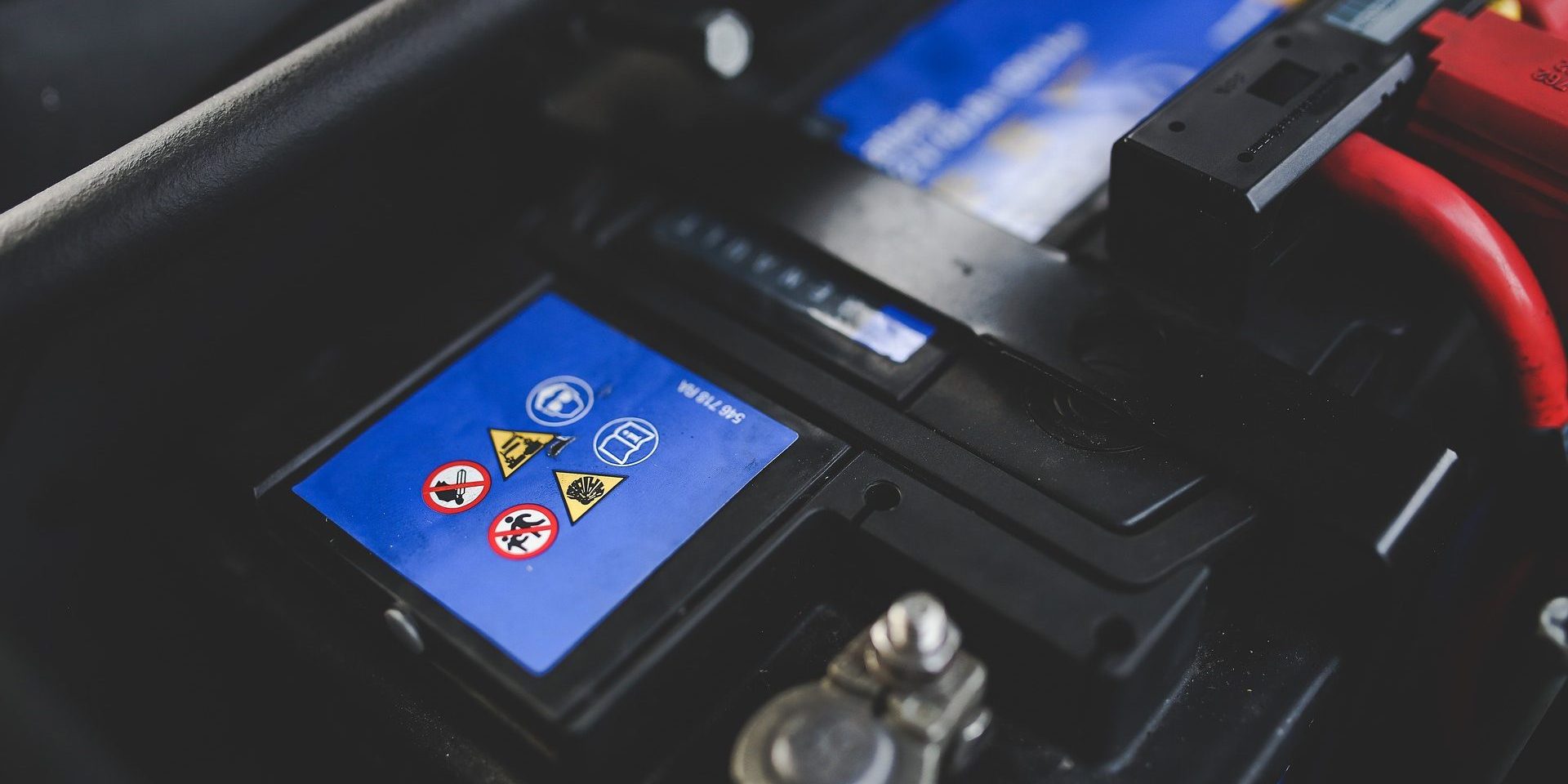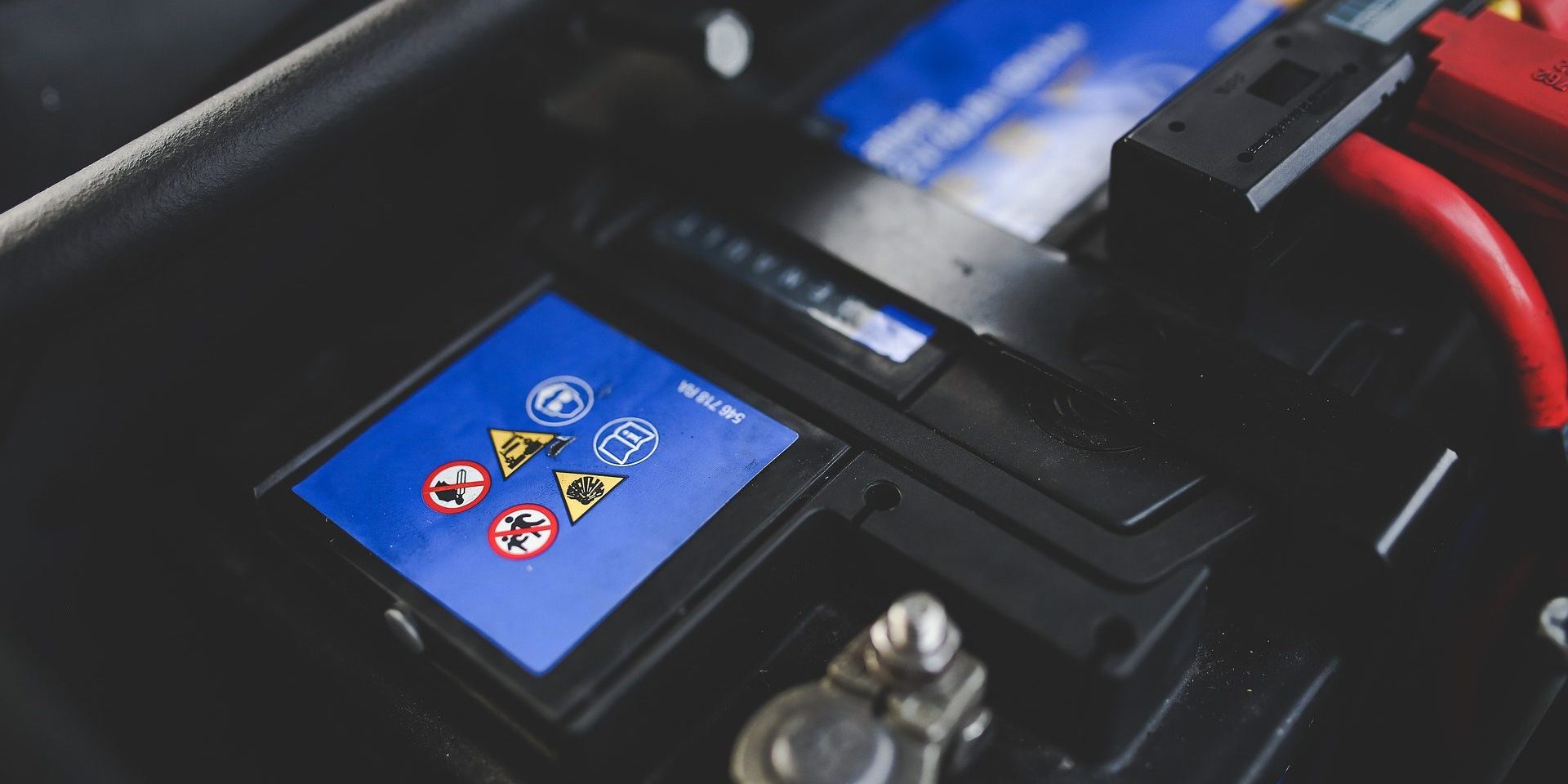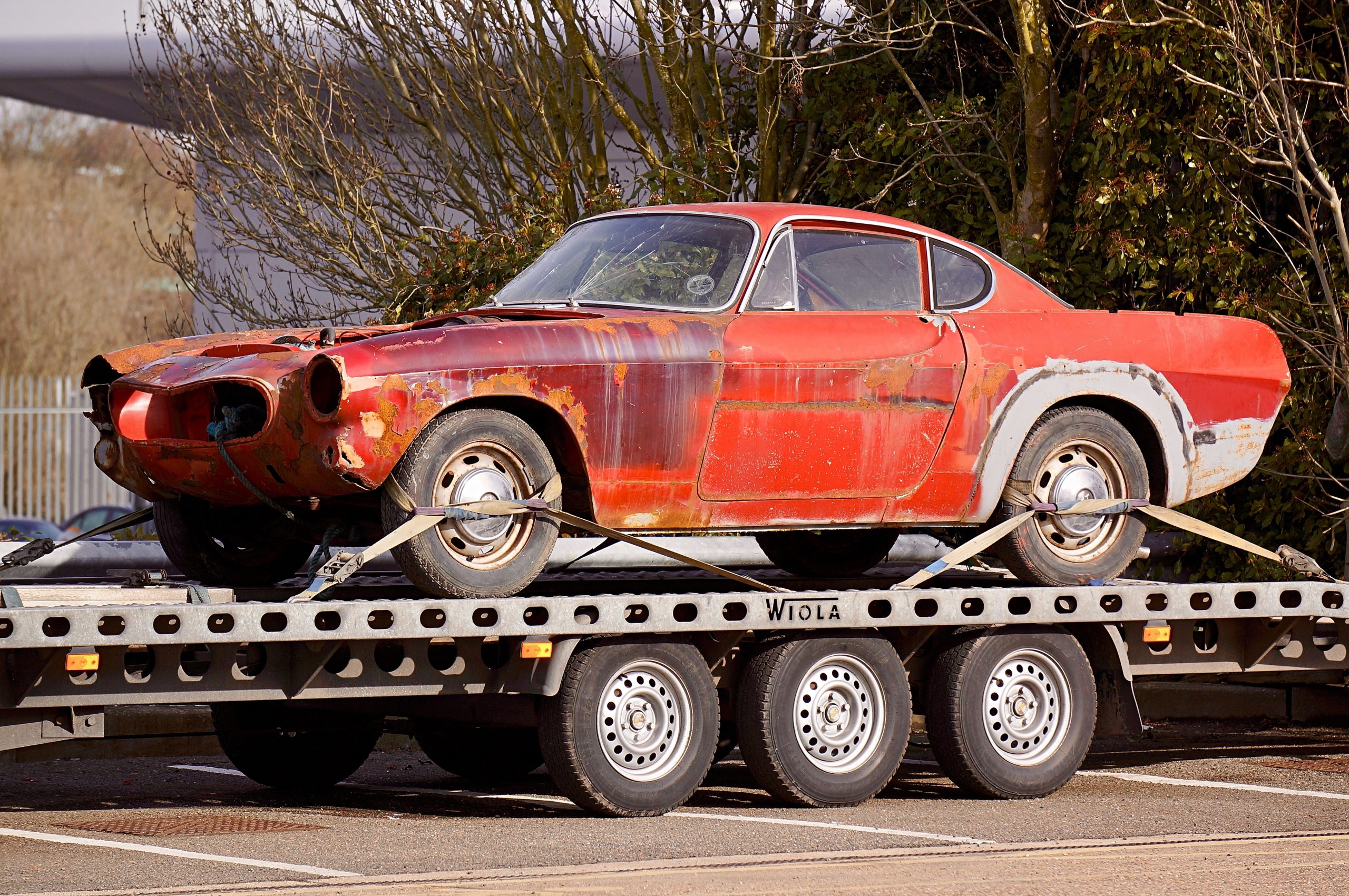How heavy is a car battery?


The weight of a car battery solely depends on its type and capacity. Generally, most automotive batteries weigh between 30-50 pounds (13-23 kg). While some high-powered truck batteries can weigh up to 90 pounds (40 kg), smaller batteries like those used in motorcycles usually weigh less than 10 pounds (4.5 kg). It’s crucial to choose the right battery for your car based on its weight, size, power output, and compatibility with your vehicle’s charging system.
Aside from their varying sizes and weights, car batteries vary in how they hold their charges, their maintenance requirements, expected lifespan and ability to maintain consistent voltage over time. Keeping these factors in mind will ensure that you get the best performance from your car battery while maximizing its operational life.
It is quite common for drivers to overlook their battery due to a busy schedule or lack of knowledge regarding proper maintenance methods leading them to experience vehicle functionality issues when they least expect it. Ensure that your vehicle is operating at optimal performance by periodically checking your battery status.
One driver recounts having his car stall as he was driving through town because he had failed to check his battery before embarking on his journey. He called for assistance, which arrived promptly enough. However, this delay stranded him in an unfamiliar location for hours, causing inconvenience and associated expenses incurred during travel.
Weight of a Car Battery
To understand the weight of a car battery, focus on its average weight and the factors affecting it. For example, the type of battery, lead content, and the number of cells can all impact its weight. In this section, you’ll explore the sub-sections on the weight of a car battery and learn about the factors that make it more or less heavy.
Average Weight of a Car Battery
Car batteries are an essential part of a vehicle’s electrical system. If you’re curious about the weight of a car battery, it largely depends on the type and size of the battery used in the car.
To give you an idea, we have created a table of various car batteries and their corresponding weights. The table provides accurate information on the Average Weight of Car Batteries in kilograms (kg).
| Battery Type | Weight (kg) |
|---|---|
| Flooded Cell (Lead-acid) | 17-25 |
| AGM (Absorbent Glass Mat) | 16-30 |
| Lithium-Ion Polymer | 5-10 |
It is important to note that car batteries range in size and technology used from one manufacturer to another, so these weights may differ slightly based on your specific battery.
Furthermore, it’s interesting to know that early electric cars used “wet cell” batteries which were weighed down by heavy lead plates and sulfuric acid electrolyte. In contrast, modern electric cars use lithium-ion batteries which are considerably lighter and more energy-dense than traditional lead-acid batteries.
Factors Affecting Car Battery Weight
Car battery weight depends on several factors that affect its overall mass. The weight of a car battery mainly depends on its capacity, chemistry, and size.
| Factors Affecting Car Battery Weight | Description |
|---|---|
| Capacity | Higher capacity batteries are generally bigger in size and thus weigh more. |
| Chemistry | The type of battery chemistry used affects the weight of car batteries. |
| Size | Larger batteries have lower energy densities and thus weigh more compared to smaller ones. |
Apart from these primary factors, other minor determinants include the amount of lead used, the number of cells used in a particular configuration, and the thickness of the battery plates. Understanding these subtle nuances can help choose the right battery for one’s vehicle without compromising safety.
Historically, car batteries were much heavier than they are today, which made them prone to dislodging or breaking free from their positions during heavy braking or acceleration. However, thanks to advancements in technology and design considerations aimed at reducing weight while maintaining performance standards, modern car batteries now offer an optimal balance between power output and ease of handling.
Types of Car Batteries and their Weight
To determine the weight of car batteries, you must first consider the type of battery. Different types of car batteries have unique features and characteristics that affect their weight. By examining the three main types of car batteries, including lead-acid, lithium-ion, and nickel-metal hydride, we can gain a better understanding of the weight variations within each category.
Lead-Acid Batteries
Lead-acid batteries, a type of car battery widely used in the automotive industry due to their high cranking amps and affordability. These batteries are made of lead plates and a sulfuric acid electrolyte solution enclosed in a durable plastic case.
| Property | Description |
| Voltage | 12 Volts |
| Weight | 30-50 pounds (depending on the size) |
| Cranking Amps | Between 400-1000 (depending on the size) |
Lead-acid batteries also have the advantage of being rechargeable and can be maintained for an extended period. It is important to note that while these batteries have a lower energy density when compared to other types, they are still preferred for their cost-effectiveness and reliability.
A study conducted by the US Department of Energy found that lead-acid batteries have a recycling rate of approximately 99%. This highlights the importance of proper disposal methods to prevent environmental damage from these hazardous materials.
Lithium-Ion Batteries
Leveraging the power of Lithium, these advanced batteries are high-capacity and lightweight. They have become increasingly popular in recent years due to their ability to power a vast array of devices.
Below is a table that displays different types of Lithium-Ion Batteries along with their respective weights:
| Type | Weight (grams) |
|---|---|
| Lithium Cobalt Oxide | 120-200 |
| Lithium Manganese Oxide | 160-250 |
| Lithium Iron Phosphate | 220-340 |
These batteries have a longer lifespan than traditional batteries and can be charged several times before needing to be replaced. Additionally, they don’t have a memory effect, meaning that they don’t lose their charge capacity over time.
It’s worth noting that while Lithium-Ion Batteries are more expensive than other types of batteries, they’re also more efficient and reliable.
According to a report by Grand View Research, the global lithium-ion battery market size was valued at USD 32.03 billion in 2019.
Nickel-Metal Hydride Batteries
Nickel-Metal Hydride Cells are rechargeable batteries that use a combination of a hydrogen-absorbing alloy as the negative electrode and nickel oxyhydroxide or nickel hydroxide as the positive electrode. The electrolyte used in these batteries is usually potassium hydroxide in water.
A table displaying the weight of Nickel-Metal Hydride Batteries is shown below:
| Battery Model | Weight (grams) |
|---|---|
| AA battery | 24 |
| AAA battery | 11 |
| C cell battery | 85 |
| D cell battery | 153 |
Interestingly, Nickel-Metal Hydride Batteries have a higher energy density compared to their predecessors, Nickel-Cadmium batteries. This makes them popular for use in electric vehicles and hybrid cars.
A friend once shared his experience using an electronic device powered by Nickel-Metal Hydride Batteries. He was happy to find out that they had much longer-lasting power than traditional batteries.
Car battery weight may not be the sexiest topic to discuss, but it’s definitely a heavy subject.
Importance of Car Battery Weight
The weight of a car battery is an essential factor that can affect a vehicle’s performance. A lighter battery can improve fuel efficiency and handling, while a heavier one may lead to reduced mileage and slower acceleration. Hence, the importance of car battery weight cannot be underestimated.
Apart from its impact on performance, car battery weight also determines its portability and ease of installation or replacement. For instance, a heavy battery may require more effort to install due to the additional weight. Hence, it becomes crucial to consider the size and weight of the battery before purchase.
Additionally, selecting a compatible battery with proper dimensions and weight can enhance the overall safety of the vehicle as well. Improperly fitted batteries may result in electrical fires, leakage or even explosions. Thus, regular maintenance and proper handling are also crucial for optimal performance.
To ensure maximum efficiency, it is highly recommended to consult with experienced professionals for recommendations on suitable brands or models for your specific vehicle. Moreover, preventive measures such as checking the condition of cables and terminals can ensure long-lasting performance and lifespan of your car’s batteries.
Tips for Maintaining Car Battery Weight
To maintain the weight of your car battery, follow these 4 easy steps:
- clean the terminals with a corrosion cleaner and a wire brush.
- inspect the battery for physical damage such as cracks or dents and replace it if necessary.
- check the water level in each cell every 3 months and add distilled water as needed.
- Finally, avoid overcharging your battery by using a smart charger or maintenance charger when not in use.
It’s important to note that keeping your car battery maintained doesn’t just help with weight but also prolongs its life and ensures it functions efficiently. Although weight may seem insignificant when compared to performance, lighter batteries can increase fuel efficiency which is a desirable feature for most drivers.
Once upon a time, a driver was on his long road trip when his car broke down due to a dead battery. Having learned from his mistake, he now follows regular maintenance procedures and checks on the weight of his battery before heading out on any long journeys again. Don’t make the same mistake – keep up with your car battery maintenance!
How heavy is a car battery? – Key Takeaways
Car battery weight varies based on different factors. Car types, models and sizes play a significant role in determining how heavy a car battery is. Furthermore, the battery’s technology, whether old-fashioned lead-acid or new lithium-ion batteries, also affects its weight. Generally, an average car battery weighs around 40 pounds or 18 kg. However, bigger vehicles would require more powerful batteries, which are usually much heavier than this benchmark.
It is important to note that different manufacturers use unique materials and designs in their batteries. Suppose you are looking for a lightweight battery; you might want to opt for a lithium-ion battery as they are known for being lighter than traditional car batteries. Still, bear in mind that they can be quite expensive.
Given this information on car battery weight, consider your vehicle’s requirements when purchasing a new one. Some strategies can help reduce its burden and extend its lifespan significantly. Regular maintenance like cleaning off any corrosion is crucial in keeping the weight of your car battery as light as possible since it prevents wear and tear from developing on it over time.
- Using a charge controller can prolong your car battery’s life by ensuring that it does not degrade due to overcharging or getting too low of power regularly.
Therefore, before making any purchase decisions regarding your car’s health and well-being via its electrical systems’ longevity, consider your various options carefully while weighing up all available facts!
How heavy is a car battery? – Frequently Asked Questions
1. How much does a car battery weigh on average?
The average weight of a car battery is around 40 pounds or 18 kilograms.
2. Can car batteries weigh more or less than the average?
Yes, car batteries can weigh more or less than the average depending on the make and model of the car, as well as the type of battery used.
3. Why does the weight of a car battery matter?
The weight of a car battery is important because it affects the overall weight of the car, which can impact its performance and fuel efficiency.
4. How do I determine the weight of my car battery?
You can determine the weight of your car battery by checking the manufacturer’s specifications or by using a scale to weigh the battery.
5. Can I replace my car battery with a lighter option?
Yes, there are lighter options for car batteries, such as lithium-ion batteries, but these may be more expensive than traditional lead-acid batteries.
6. Is it safe to lift or move a car battery on my own?
Car batteries can be heavy and contain hazardous materials, so it is important to use caution when lifting or moving them. It is recommended to wear gloves and eye protection and to use proper lifting techniques.











[…] The cost of a new car battery can range from $50 to $200 depending on the type of battery and the make and model of your c…. Adding the cost of labor, the total cost can be around $100 to […]
[…] Typically a fully charged car battery is about 12.6 […]